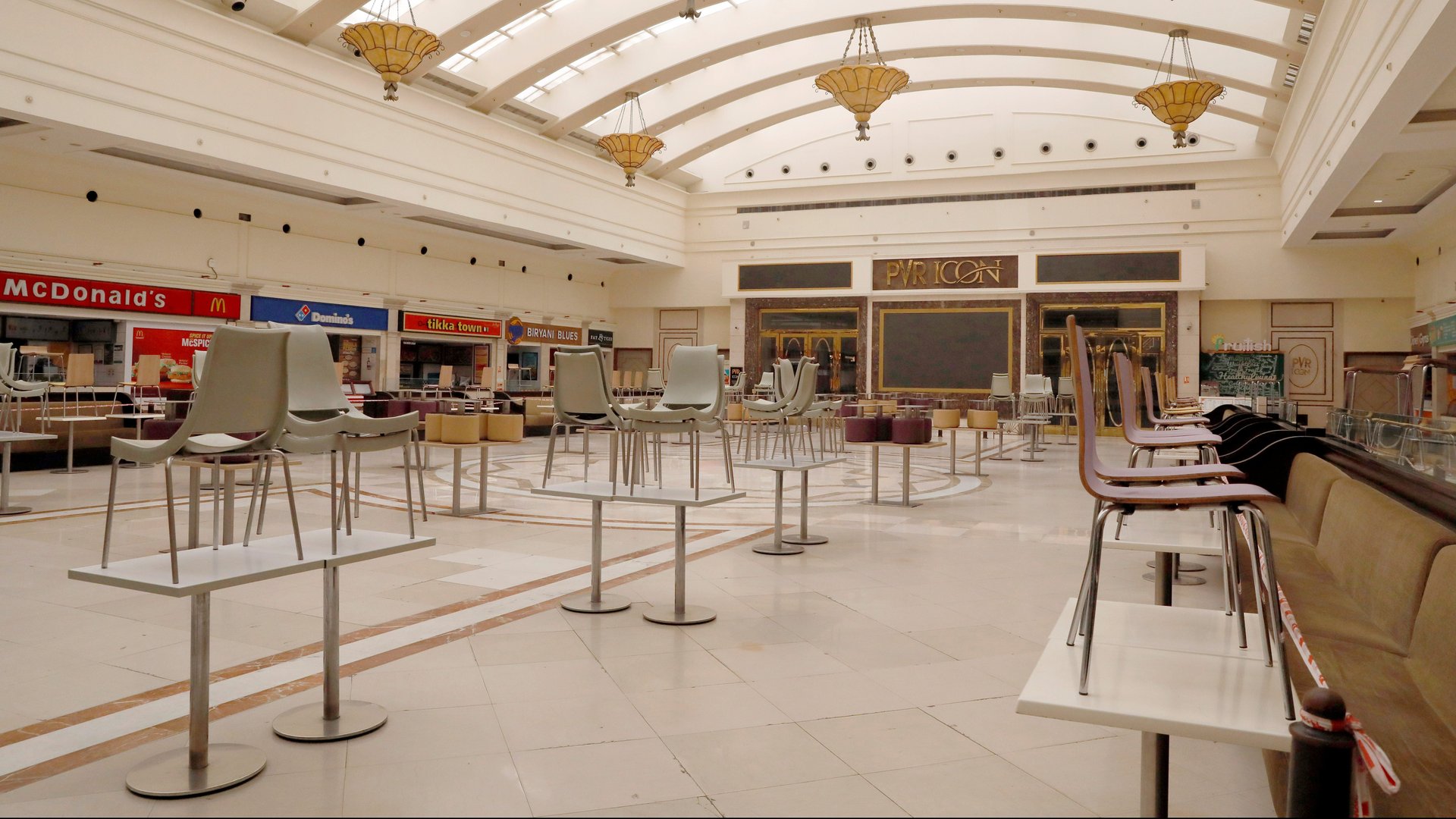India’s retail real estate will struggle as customers go back to local shops amid the pandemic
The real estate segments that have been worse hit by the Covid-19 pandemic in India will also be the ones to remain crippled for the longest time.


The real estate segments that have been worse hit by the Covid-19 pandemic in India will also be the ones to remain crippled for the longest time.
Hospitality—including co-working, co-living, and student housing—along with retail spaces have been the worst affected due to the coronavirus outbreak and the ensuing lockdown in India, a recent report by property consultancy firm Anarock said. It might take these segments over a year and a half to find their feet.
Other segments such as data centres and warehousing are relatively less hit and will recover sooner, the report said.
The retail sector was severely impacted as the government-imposed shutdown shuttered most of the malls across the country for nearly two months. In addition, consumers have gone back to trusting local mom-and-pop stores, who continue to support them during the lockdown, the report said, which may continue to hurt malls’ business going forward.
With social distancing still the need of the hour, and the rise in job loss and salary cuts across industries, it might be a while before malls start seeing crowds.
In March, travel restrictions around the globe led to a 65% year-on-year drop in overall occupancy levels at hotels in India, forcing 60% of organised hospitality firms in the country to close their doors. Co-working spaces, too, reportedly saw a shortfall of at least 50% of employees in March, as the lockdown compelled a majority of staff workers to bring their work home.
For the residential segment, however, the pandemic may prove to be a boon as the ”demand for houses may rise due to a growing desire to reside in a controlled environment,” the report said.